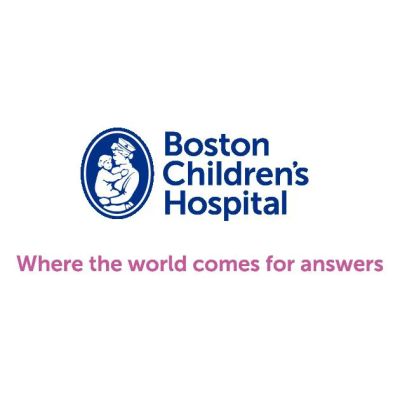- heart-disease-and-emotional-well-being-are-deeply-connected
- emotional-impact-of-diagnosis-and-living-with-heart-disease
- how-emotional-support-aids-recovery-and-heart-health
- building-a-personal-support-network-that-works
- real-stories-that-highlight-the-power-of-emotional-care
- practical-ways-to-integrate-emotional-support-into-daily-life
1. Heart Disease and Emotional Well-Being Are Deeply Connected
When we talk about heart disease, we often focus on cholesterol, blood pressure, or diet. But there’s another crucial piece often overlooked—emotional health. The connection between heart disease and emotional support is not only real, but backed by science. Studies from the American Heart Association show that individuals with heart conditions who lack social or emotional support have worse outcomes, including higher hospitalization and mortality rates.
Stress, anxiety, loneliness, and depression can all worsen cardiovascular health by raising inflammation and blood pressure, interfering with sleep, and discouraging healthy behaviors. Meanwhile, consistent emotional support—from family, friends, counselors, or support groups—can literally ease the burden on the heart. In today’s patient-centered care, integrating emotional support into treatment plans is as essential as medication or exercise. That’s where platforms like HeartCare Hub come in, helping patients access not only medical resources but emotional ones too.

2. Emotional Impact of Diagnosis and Living with Heart Disease
Being diagnosed with heart disease can feel like the floor has dropped out from under you. Whether it’s a heart attack, heart failure, or a chronic arrhythmia, patients often describe the experience as a mix of fear, confusion, and guilt. One common reaction is what's known as "cardiac blues"—a period of sadness or depression after a cardiac event. According to Johns Hopkins Medicine, up to one in three patients experience serious depressive symptoms post-diagnosis.
These feelings don’t always fade. Long-term living with heart disease involves lifestyle changes, constant medication, and anxiety over the next flare-up. This emotional strain can lead to isolation, withdrawal, or denial—each of which poses its own risks. Ignoring the emotional component is like treating only half the disease. Patients and caregivers must address the psychological shift that comes with such a life-altering condition.
It’s vital to name these feelings, seek validation, and build proactive strategies. Emotional wellness is not a luxury—it’s a form of heart therapy. Platforms like HeartCare Hub often match patients with peer mentors and therapeutic guidance specifically designed for cardiac journeys.
Atlanta Heart Specialists
atlanta heart specialists
4375 Johns Creek Pkwy #350, Suwanee, GA 30024, USA

3. How Emotional Support Aids Recovery and Heart Health
Emotional support does more than make you feel better—it can significantly influence your biological recovery. Research has shown that people with strong emotional support systems have lower levels of cortisol, the stress hormone that contributes to high blood pressure and inflammation. Moreover, they’re more likely to adhere to medication routines, exercise regularly, and attend follow-up appointments.
In clinical settings, cardiologists increasingly partner with mental health professionals to ensure that patients receive integrated care. Programs combining cardiac rehab with counseling have resulted in higher recovery rates and improved long-term outcomes. Even something as simple as a weekly phone call with a loved one has been linked to reduced cardiac events.
One powerful example is a 2021 Cleveland Clinic study showing that patients who reported high perceived support had 50% fewer readmissions within 90 days post-discharge. Emotional care isn’t just kind—it’s cardioprotective. Services offered by HeartCare Hub build on this principle by providing virtual access to trained counselors and curated resources that address the emotional side of healing.
4. Building a Personal Support Network That Works
Support looks different for everyone. For some, it’s a spouse who attends appointments and helps track meds. For others, it’s a close friend who offers encouragement on tough days, or a community group that shares the ups and downs. What matters most is that your support system is reliable, compassionate, and aligned with your healing goals.
Start by identifying three categories: emotional (someone who listens), practical (someone who helps with tasks), and medical (a professional who explains and advocates). Your network might include a family member, a spiritual counselor, a nurse, and even a fellow patient. The goal is to ensure no aspect of your healing is left unsupported.
Don’t be afraid to ask for help. Many patients hesitate, fearing they’ll burden loved ones. But more often than not, people want to help—they just need to know how. Create a simple care checklist. Ask for accountability partners. Join an online heart health forum. Sites like HeartCare Hub connect users with others who truly “get it,” making vulnerability easier and more impactful.
5. Real Stories That Highlight the Power of Emotional Care
When Sarah, a 42-year-old mother of two, had a minor heart attack, she found herself overwhelmed not just physically, but emotionally. “I couldn’t stop crying, but I didn’t know why,” she said. “I felt broken.” Her cardiologist referred her to a therapist familiar with cardiac trauma. Through six months of therapy and regular check-ins with a local women’s heart support group, Sarah not only recovered but rebuilt her life with stronger boundaries and self-awareness.
Another example is Tom, a retired firefighter who was used to ignoring pain. After undergoing a triple bypass, he resisted counseling until a nurse at his cardiac rehab introduced him to an online support network. “Talking to other men who went through the same thing—that was what shifted my mindset. I wasn’t weak, I was human,” he reflected.
These stories remind us that heart disease and emotional support are never separate paths. Healing is most effective when both the body and the mind are engaged. Real support isn’t about clichés—it’s about genuine presence and perspective.
6. Practical Ways to Integrate Emotional Support Into Daily Life
Turning emotional care into a daily habit is entirely possible, and the results are transformative. Here are some ways to make it part of your routine:
- Scheduled Check-Ins: Plan regular emotional health check-ins with someone you trust. This could be a five-minute phone call or weekly coffee with a friend.
- Journaling: Document your fears, wins, and questions. Writing offers clarity and stress relief.
- Guided Meditation or Mindfulness Apps: Tools like Headspace or Calm have specific heart-health programs to reduce anxiety and improve rest.
- Support Groups: Join a local or virtual cardiac support group for shared understanding and insight.
- Professional Counseling: If you notice persistent sadness or panic, a licensed therapist can provide structured, personalized strategies.
Making emotional support part of your recovery plan isn’t about weakness—it’s about strength and sustainability. Over time, these efforts help reduce stress hormones, improve sleep, and reframe how you see your condition. If you're looking for a place to start, HeartCare Hub offers patient-centered resources designed to empower your emotional and physical heart health together.





















Deborah Heart and Lung Center
deborah heart and lung center
200 Trenton Rd, Browns Mills, NJ 08015, USA